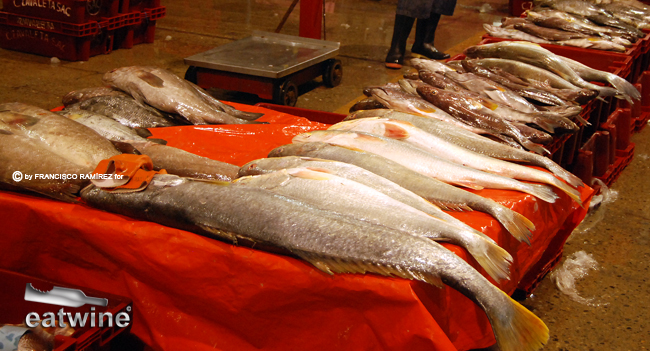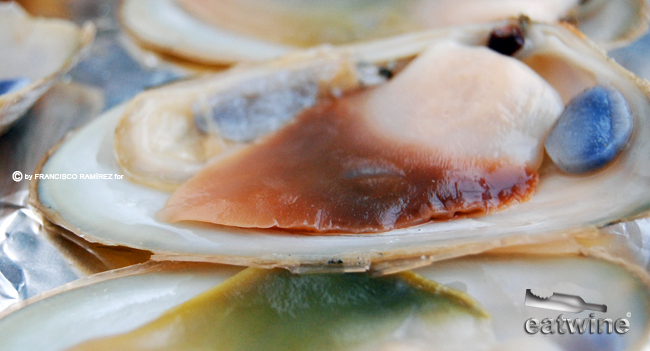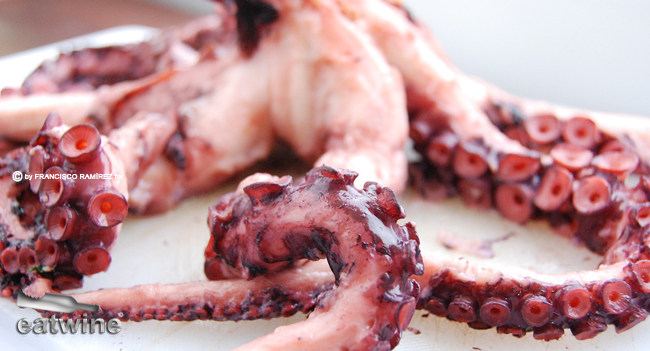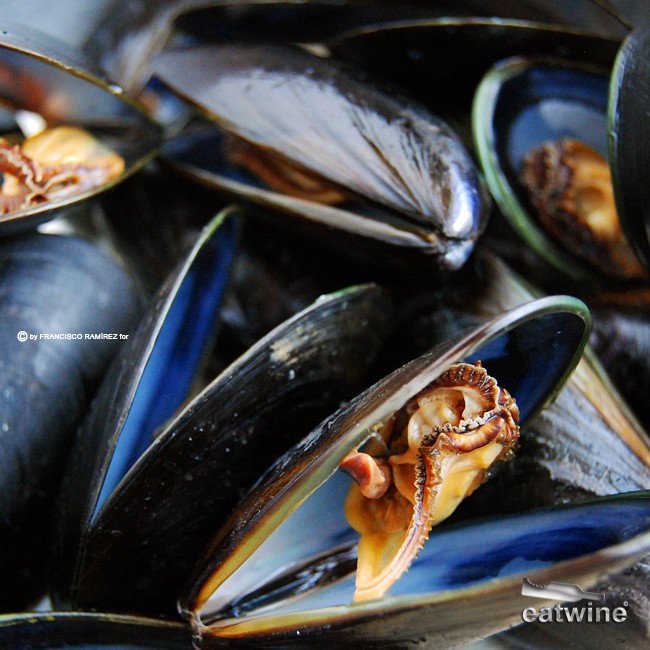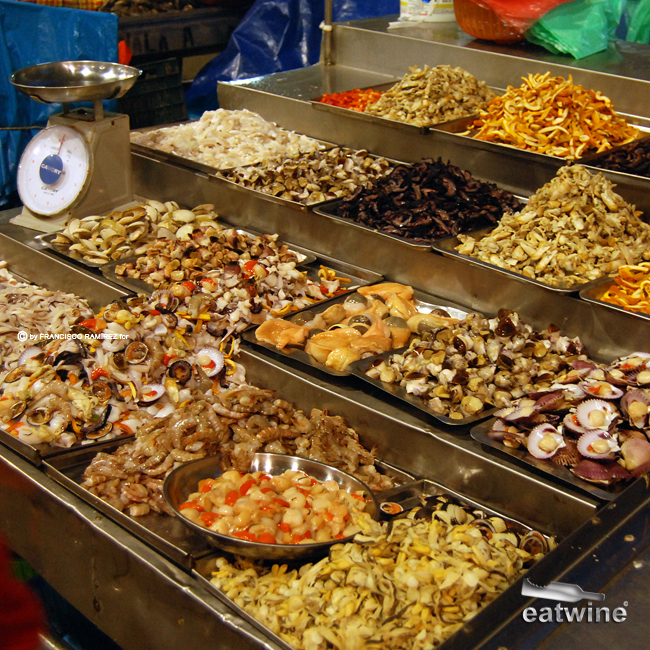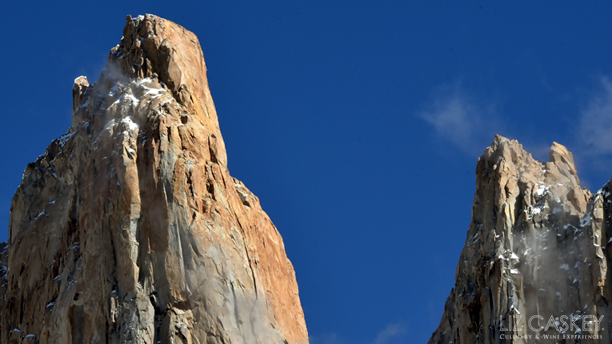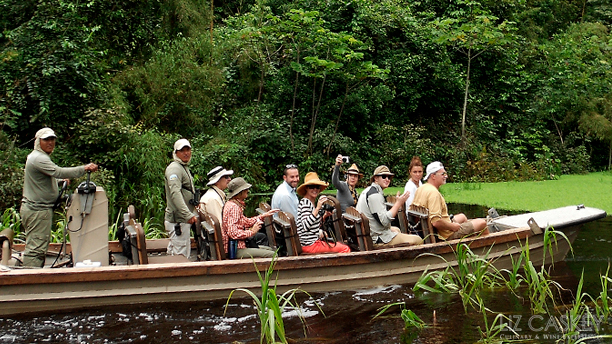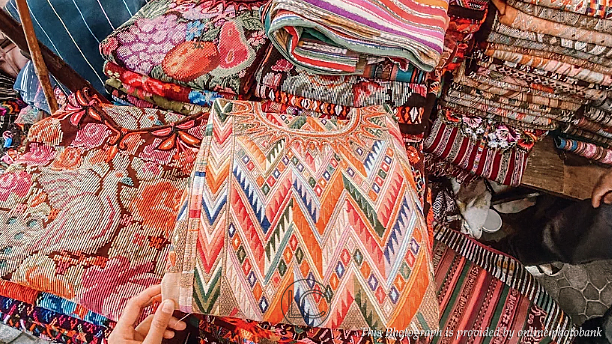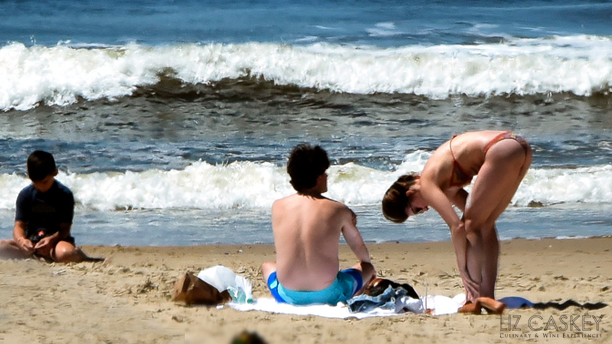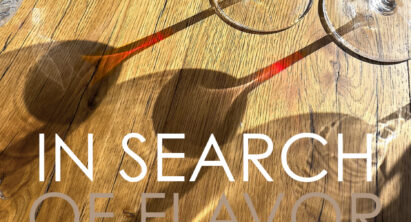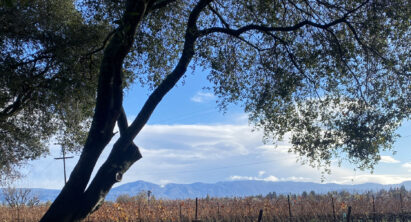With thousands of miles of coastline and the chilly Humboldt current from Antarctica, Chile is one of the most blessed countries in the world with a plethora of species of fish, shellfish, crustaceans, and sea vegetables. There are literally dozens upon dozens of different species, many indigenous and not known outside Chile like machas (razor clams). The mighty Pacific is truly an abundant source of substance for Chileans. Then, why is it that people here don’t eat more fish? Why is it, when they do eat it, at time they opt to buy seafood that is en veda, restricted, or caught in a non-sustainable way? Why does the average Chilean cook have the tendency to overcook seafood, even in ceviche (letting it sit for hours in lemon juice, NOOOO….), or in a hot entree. This is committing food murder in front of our own eyes. It’s a terrible waste of a precious food resource that is every day less renewable. Why don’t Chileans, as consumers, demand better fish, collected with sustainable practices that make the future brighter for the fishermen, the caseros (mongers) in the market, the species, and restaurants? It’s a productive chain that is completely interconnected.
As humans, we have been fishing the ocean for thousands of years. However, in the past five decades, the technology has allowed us to fish farther, deeper, and more “efficiently” than before. To throw out some statistics, scientists calculate that we have removed more than 90% of the predatory fish like sharks and swordfish from the world’s oceans. The oceans, including the Chilean Pacific, are in a state of silent collapse. This threatens our food chain, economy and legacy that we will pass on to future generations.
First, we have to keep in mind that all fish in the ocean are wild animals. For this reason, deep water fishing (or any fishing operation of that scale) is no different than hunting deer. While the oceans may seem infinitely vast to our senses, they also have their limits. Every creature has a cycle of growth and reproduction that assures the future existence of that species. I am really dumbfounded by how Chile can be so incredibly paranoid and rigorous with laws and regulations about land agriculture, crops, and any natural product being introduced to the country, but on the other hand, when it comes to the Ocean, while there are some laws, the situation becomes more vague and is often subject to individual interpretation. For example, let’s take an impoverished artisan fishermen in the south of Chile who needs to make a living—and it’s the only way he knows how. So, in this scenario, that fishermen goes out to sea one morning. There are not any large (adult) fish that day. He decides to catch whatever comes into his net and subsequently tugs in tiny (young) merluza, hake (that can grow up to 3 feet long as an adult). He sells it for a pittance to a monger who will sell it cheaply in the local port’s fish market. Then, the consumers, who don’t think anything of this, buy the fish because it’s barato, even if it’s small, for their fried fish. This may seem innocent but what it does is slowly and “efficiently” kill that species. And don’t reduce this just to eating fish that are small-sized—these fish are babies, immature animals. They are aborted in their natural cycle of life and not given a chance to fulfill their purpose to help their species survive through the reproductive cycle. This creates a dangerous circle. There absolutely has to be laws governing the fishing activity in Chile so that fishermen themselves respect the size that each species should have to be sold and accepted in the market. It is the responsibility, too, of the mongers and chefs not to buy these fish. Without a market, there’s no demand. I humbly believe that this should be rigorously enforced and fined, the same way Chile’s SAG (customs) will slap you with a US$200-$10,000 fine if you bring fresh fruit or products, not declared, into Chile (even if you forgot you had a banana in your backpack). There is no difference. It’s a protection of the natural environment and its future health. Period.
This also goes for the periods when there is a veda, a temporary prohibition on fishing a certain species. In Chile this often will occur with Mero (Patagonian Toothfish) and abalones. I love the fact that in Lima among chefs, they have teamed up to respect these periods of “no fishing” in a very visible way. In fact, it has become very out of vogue to source anything on that list when it’s not in season. Diners think poorly of a chef who would put shrimp on their menu when they know its spawning season. Same goes with octopus or conchas negras (black clams from Piura). These same chefs are the bridge between the artisan fishermen and consumers, and in many cases, have the power to say “this is not okay, I am not supporting this”. When they pull together under the same ideals, then attitudes and practices begin to change. Those same fishermen would never, now, fish those animals that are out of season. It would be like shooting themselves in the foot.
In the US, The Monterey Bay Aquarium in California, has initiated an innovative program called “seafood watch”. It has worked with end consumers (like us), chefs, restaurants, retail, and the productive chain since 1999. It produces guides for each region in the US (which everyone should be using!), that announces the species that are okay to eat and those to avoid (especially useful before heading out for sushi I may add). As an example, on this list it advises NOT to eat Chilean Seabass (which is really Patagonian Toothfish, in danger of extinction) and farmed Salmon (much of which is from Chile). There’s even an iPhone app now for easy reference. This small action of eating smartly, and sustainably, truly makes a huge difference. It’s about changing and raising the levels of awareness. Each person’s actions make a difference.
The sea in Chile is a garden just like its long, lush Central Valley that gives us such an abundance of crops, wine, and produce. The sea is also a garden that will sustain us, abundantly, but only if we take the time to take care of her, let her reproduce, and have a real awareness that our actions affect her, the same as on land. I seriously wonder if one day we we will run out fish in Chile. It’s no joke. It could happen if things continue down the slippery path they are following at present. Ask any of the fishermen in the wharfs of the central coast like Quintay or Quintero about merluza and how the fishing has diminished in the past three decades. “Ya casi no hay”, there is no more, they will tell you. Look at how the “incredibly profitable” farmed salmon industry has contaminated and ruined pristine Patagonian waters in the south, where garbage washes up on virgin beaches and a virus nearly caused an environmental catastrophe a few years ago. This does have repercussions–not just for the animals, but for us humans too. We must respect the sea and all that she offers. She is here to benefit us. We must remember we are all part of a productive chain that involves so many people: You, me, the restaurant and its cooks, the fisherman and his family, the businessman, the fish monger in the Central Market. Everybody can win IF we have the awareness to take the right actions and an understanding that the ocean is a renewable resource–only if we take care of her.

